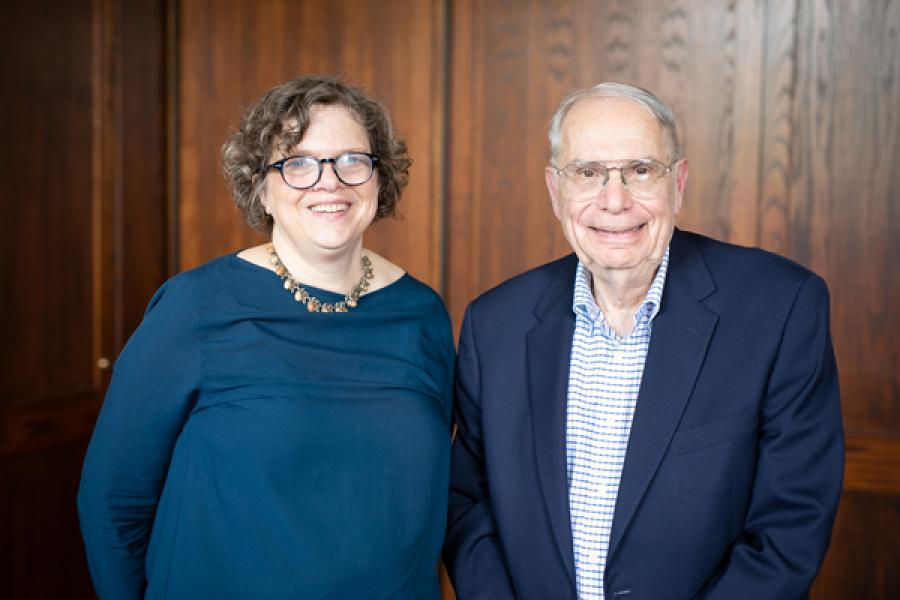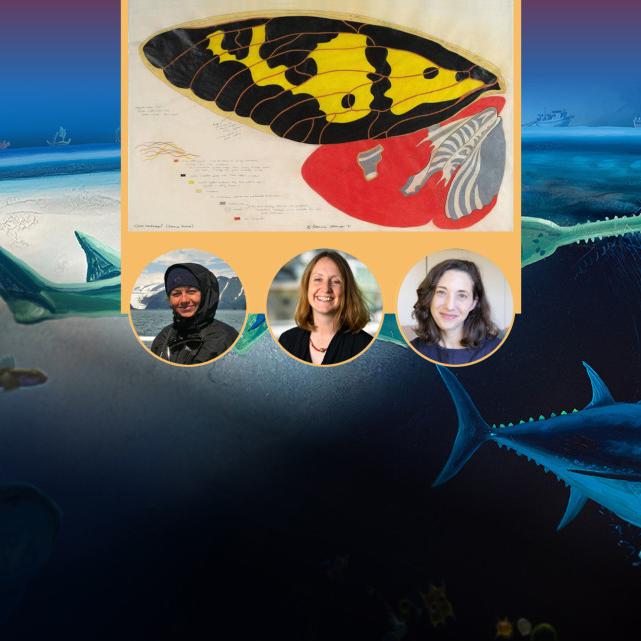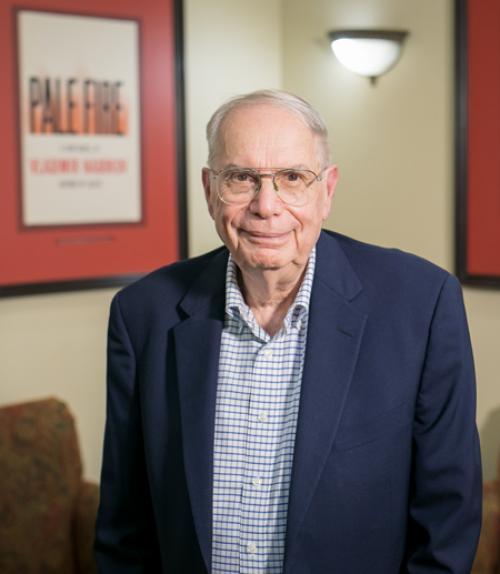A gift from Joe Martino ’53 to the Department of English is expanding the opportunities for students interested in studying literature from the traditional English canon.
Jane Glaubman Ph.D. ’18 will hold the Joseph F. Martino '53 Lectureship in Undergraduate Teaching for the 2018-19 year and will offer two first-year writing seminars based on the theme of romance. The pair of classes will serve as a survey course introducing students to English literature.
Martino, who had a long career as a high school English teacher before his retirement, said he established the endowment to ensure that students have access to some of the traditional works that shaped his own undergraduate experience at Cornell.
As a Cornell student, Martino wasn’t sure of his major until he took a class from novelist Vladimir Nabokov, who taught at Cornell from 1948 to 1959.
“As a high school student, when I was reading, I would read for the plot and the characters, but he taught me to look beyond that, to see the symbols and to see beyond the literal images,” Martino said. “That had a great effect on my ability to teach literature to students.”
Martino took Nabokov’s courses during his sophomore year. “I wish I had kept my notes,” Martino said.
As a student, Martino gravitated to British and European literature, a love he continued as a high school English teacher in New Jersey. Some of his favorite works? “Madame Bovary,” “Anna Karenina,” “Buddenbrooks” and anything by Albert Camus, T.S. Eliot or Jane Austen.
“As a teacher, I showed considerable enthusiasm for these works, so I think even students who weren’t sure about them would wonder ‘Well, if he likes it so much, what am I missing?’ “ Martino said about his approach to teaching.
Jane Glaubman PhD ’18, left, will hold the Joseph F. Martino '53 Lectureship in Undergraduate Teaching for the 2018-19 year. Martino, right, met Glaubman during Reunion Weekend in June.
Glaubman is enthusiastic about her new position, adding that all students benefit from studying these classic texts.
“I find in teaching first and second-year students, whenever I include something from the literary canon on the syllabus, I get better papers,” Glaubman said. “These works are very rich and extremely complex. When students read these works carefully, their writing gets better.”
Glaubman, however, emphasized the importance of diverse literary exploration. The English department at Cornell offers classes focused on various historical periods, literary genres, creative writing, women’s literature, African-American literature, literature and the visual arts, critical theory and numerous other subsets related to English.
“Students arrive in our classrooms with a wide variety of literary backgrounds, so everyone is bringing something different to it,” she said. “It’s why you learn from your students all of the time.”








